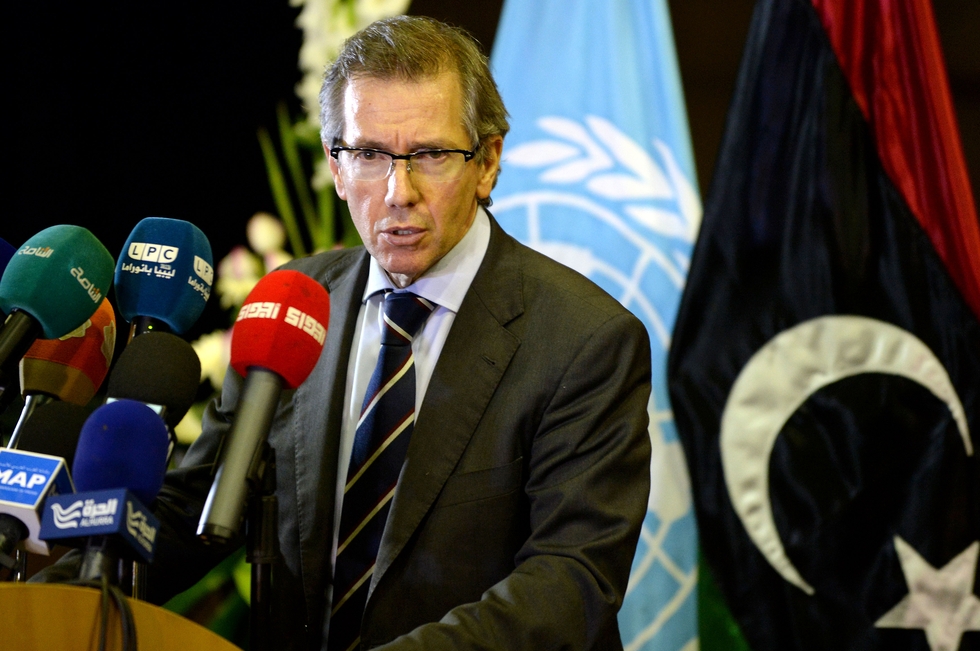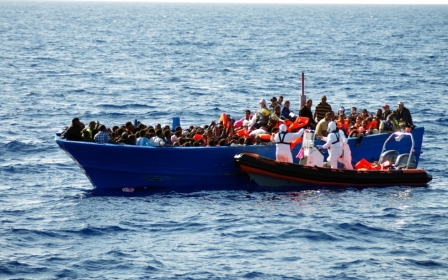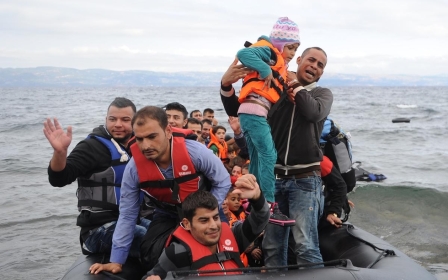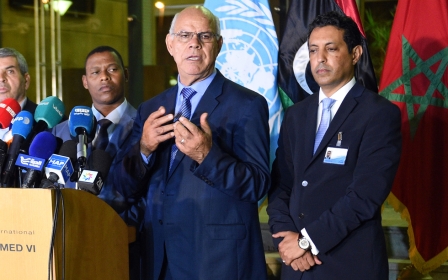UN unveils Libya unity government plan

The UN envoy for Libya on Thursday announced a proposal to create a national unity government for the divided North African country, but representatives of both of the country's competing administrations were quick to dismiss the plan.
The announcement of a "government of national accord" by Bernardino Leon, the UN's chief diplomat for Libya, in Skhirat, Morocco, where the latest round in months of peace talks are taking place, included the naming of Fayez Sarraj, a member of the Tripoli-based General National Congress (GNC), as prime minister, as well as a presidential council and prime ministerial deputies representing the country's east, west and south.
"After a year of work on this process, after working with more than 150 Libyan personalities from all the regions, finally the moment has come in which we can propose a national unity government," Leon told a news conference.
But the plan still needs to win the support of the country's rival governments in Tripoli and Tobruk, and neither side appeared initially supportive of the initiative.
Abdulsalam Bilashahir, of the GNC, told the BBC: "We are not a part of this (proposed) government. It means nothing to us and we were not consulted."
Ibrahim Alzaghiat, from the internationally recognised House of Representatives based in Tobruk, was also quoted as saying: "This proposed government will lead to the division of Libya and will turn it into a joke. Mr Leon's choice was unwise."
The UN proposal is the latest effort to bring peace to a country that has remained wracked by violence and instability since the overthrow and killing in 2011 of long-term leader Muammar Gaddafi after a civil war.
The country's internationally recognised parliament has resided in the eastern city of Tobruk since being forced out of Tripoli in August 2014 by Libya Dawn, a loose alliance of Islamist fighters and tribal militias, which subsequently reformed the GNC which had governed the country in the aftermath of the civil war.
In the past week, US Secretary of State John Kerry, UN Secretary-General Ban Ki-moon and other diplomats met and urged the two rival governments to act hastily and come to a consensus, advising that the instability helps armed groups like Islamic State to profilerate.
Ban on Thursday urged Libya's leaders "not to squander this opportunity to put the country back on the path to building a state that reflects the spirit and ambitions of the 2011 revolution.
"Now is the time for the parties to the political dialogue to endorse this proposal and sign the agreement without delay."
Libya's chaos has opened the door to a surge of migrants and refugees who have set off from its coast for European shores in often rickety boats operated by smugglers. Many have died on the journey.
On Monday, the internationally recognised government voted to extend its mandate past the 20 October deadline that was part of a political roadmap sketched out after Gaddafi was overthrown, signalling a lack of confidence in the UN's efforts.
A new unity government has multiple challenges, including an economy near collapse, a number of active militia groups and severe needs for basic assistance.
Previous deals to ensure a ceasefire and restore stability to the war-torn country have fallen apart.
The UN says an estimated 2.44 million people in Libya - nearly 40 percent of the country's population - are in need of protection and some form of humanitarian aid.
Since last summer, some 435,000 people have been forced to flee their homes, of whom 100,000 now live in outdoor camps or abandoned buildings, according to UN figures.
New MEE newsletter: Jerusalem Dispatch
Sign up to get the latest insights and analysis on Israel-Palestine, alongside Turkey Unpacked and other MEE newsletters
Middle East Eye delivers independent and unrivalled coverage and analysis of the Middle East, North Africa and beyond. To learn more about republishing this content and the associated fees, please fill out this form. More about MEE can be found here.




